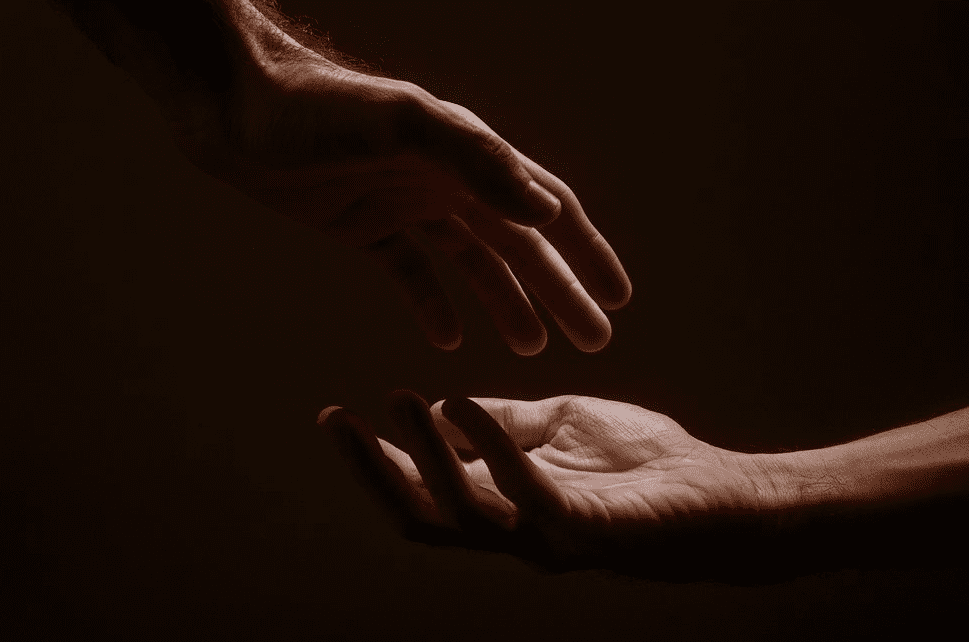Raymond Bellis
Stony Brook, New York, United States
 |
| Photo by JacksonDavid on Pixabay. |
Yet another shift in the Emergency Department—between the frenzied rush of staff, the constant pinging of monitors, and the chaotic overhead announcements, I didn’t find the environment particularly conducive to healing. But as a dedicated student in my third year of medical school, I eagerly picked up a clipboard and strolled into the room of the next patient waiting to be seen. A forlorn looking twenty-five-year-old gloomily greeted me as I glanced down at my sheet that read “Reason for visit: not feeling well.” As he started listing all his symptoms, I investigated each of these the way all students are taught to do, but by the end of this hadn’t come any closer to the source of his anguish. A quick physical exam revealed nothing out of the ordinary. Finally, I asked, “Any recent stressors or changes in your life?” At this, he let out a big sigh and said, “Well, now that you mention it, my girlfriend broke up with me a few days ago.” Aha—I stopped taking notes, put the clipboard to the side, and leaned back in my chair.
I listened as he told me how shocked he was that the person he had been with for over four years—the person with whom he spent countless hours dreaming about the future—had abruptly ended their relationship with no discernible warning signs. I empathized with him, told him how time heals all wounds, assured him that he would get through this and come out a stronger person. And after some time, having been sufficiently satisfied that I discovered the cause of his visit, I politely excused myself so I could relay my findings to my supervisor and pick up another patient.
“I agree with your assessment. We can’t fix his heartbreak unfortunately, but let’s give him some fluids and he’ll probably start to feel a bit better, at least physically.” The attending’s plan sounded reasonable to me, so I moved on and evaluated other patients. But as I continued on with my work, I couldn’t help but think back to this kid, picturing him sitting alone in a room with an IV line in his arm, immersed in his desolation. Did I really do all I could for him? I knew we weren’t in the business of fixing everyone’s life problems, but I felt that I had more to give, and that even a bit of extra effort could help him.
Over the next few hours, I sat down with him when I could find the time—talking to him not as a patient, but as a new friend, almost forgetting that he was in a hospital gown and I was in scrubs with a stethoscope around my neck. We talked about our parents, our childhoods, where we went to school, how we each ended up where we are now. We talked about relationships and the power of love’s keen sting. He subtly began to perk up the more we continued, something I had hoped and anticipated would come of our connection. What I could never have anticipated, however, was what happened next.
“I think I know what accident you’re talking about; I was there.” I felt shivers go down my spine and was left speechless after this statement. He was telling me how he often responded to car crashes in his job as a volunteer firefighter when I was reminded how, just a few weeks earlier, one of my fellow medical students was tragically involved in a fatal accident. Although I was not particularly close with the student, his passing impressed on me greatly, though it took me until meeting this heartbroken patient to realize just how much. Somehow, his being at the scene made everything click. I was overcome with emotion and didn’t have the strength to maintain my professionalism. Suddenly the roles seemed reversed, and now he was the one comforting me, telling me how time heals all wounds, telling me that I would take this terrible turn of events and become a more compassionate and empathetic doctor because of it, in honor of my fallen classmate. I don’t know how long I sat there, much of it in silence, but after a while I apologized for making this about me instead of helping him with his problems. “Oh, don’t worry about that, I think this helped me more than you realize,” he said.
After his fluid infusions had finished, one of the nurses was escorting him to the exit when I caught his eye from across the department. He stopped briefly, nodded, and mouthed “Thank you” to me before continuing on. I nodded back and smiled, but thinking back I should have mouthed “Thank you” too, because his visit helped me more than he realized as well. Turns out the Emergency Department can be a good place for healing after all.
RAYMOND BELLIS, BS, CCRP, is a fourth-year medical student at the Renaissance School of Medicine at Stony Brook University. He is currently pursuing residency in the field of ophthalmology and hopes to engage in global health opportunities to give back to underserved communities to help save or restore vision, one of the most precious senses. Prior to medical school, he worked at Memorial Sloan Kettering Cancer Center in clinical research and is passionate about ethical and holistic care of patients at their most vulnerable moments.
Submitted for the 2022–23 Medical Student Essay Contest
Fall 2022 | Sections | Doctors, Patients, & Diseases

Leave a Reply